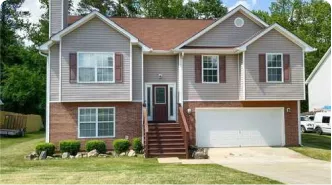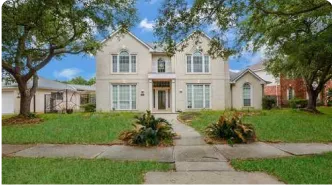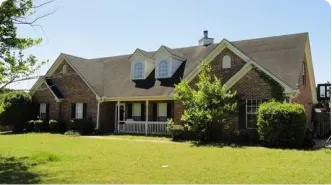Landlord and homeowners insurance are two very similar policies. There is a fine line between their differences contingent on the occupation of a home. Here’s what you need to know about both so that you can get the right policy for your property.
The best way to get landlord insurance is through Obie. Obie shops your insurance coverage to many insurance companies, getting you the best possible rate. It’s available in all 50 states.
Overview: Landlord Insurance vs. Homeowners Insurance
The primary difference between landlord insurance and homeowners insurance is who the policy is for. Landlord policies are reserved for rented properties, while homeowners insurance is for owner-occupied properties.
Homeowners Insurance Overview
Homeowners insurance is a policy designed to protect a homeowner who lives on his property. It protects the dwelling, other structures, liability, and loss of use. Loss of use is something exclusive to the homeowners' policy as it allows them to find another place to live without paying out-of-pocket while their property is being repaired during a covered claim. An important aspect of homeowners insurance is personal property coverage, which pays to replace damaged or lost items.
Landlord Insurance Overview
Landlord insurance is a policy designed to protect property owners from the financial loss from risks associated with renting out a property. It protects the dwelling, other structures, and liability. Where a homeowners policy would have loss of use, a landlord’s policy has loss of rents. This coverage pays the landlord for rent lost while the property is getting repaired after a covered loss. A landlord policy will also have personal property coverage, which is often substantially less than a homeowners policy because it's the tenants' items in the home, not the landlord's.
Coverage: Landlord Insurance vs. Homeowners Insurance
In most cases, landlord and homeowners insurance have similar coverages with a couple of key differences.
Homeowners Insurance Coverage
Homeowners insurance provides the following coverage for homeowners:
- Dwelling: The cost to replace the main structure.
- Other structures: The cost to replace gazebos, sheds, fences, and other structures found on the property.
- Personal property: Replaces personal belongings found in and around the home that include clothing, appliances, furniture, and home goods.
- Liability: Pays third-party losses of bodily injury or property damage where the claim is that the third-party experienced a loss attributed to the property owner.
- Loss of use: This allowance allows the homeowners to rent another place while their place is uninhabitable because of a claim.
Landlord Insurance Coverage
Landlord insurance provides the following coverage for property owners:
- Dwelling: The cost to replace the main house.
- Other structures: Pays to repair or replace secondary structures on the property, such as fences, gazebos, detached garages, and sheds.
- Personal property: An amount that covers the personal property that the landlord keeps on the rented property. Often, this is just enough to cover appliances left to use by tenants but may be all furnishings if the place is rented fully furnished.
- Liability: This covers third-party losses, such as when a guest might slip and fall and get hurt on the property.
- Loss of rents: Pays the landlord his lost income if the property is unrentable during a covered claim.
Cost: Landlord Insurance vs. Homeowners Insurance
Homeowners Insurance Cost
The homeowners insurance rate is contingent on several factors. This is why you need to get a quote to get a price. Insurance carriers consider the home's size, age, building construction, and location. The carrier uses this information to determine the hard cost of a potential loss and the intangible risk that something will happen. Homes that are in a storm zone will pay more for insurance than those that aren’t.
Landlord Insurance Cost
Insurance carriers use the same details to determine the rate of a landlord insurance policy. However, the intangible risks make it a more expensive policy. Tenants are less likely to care for the home in a way that a homeowner would, increasing the risk of loss. This is why landlord insurance is typically 20% more expensive than traditional homeowners insurance.
Claims Process: Landlord Insurance vs. Homeowners Insurance
Homeowners Insurance Claims
When a homeowner has a claim, he will first do what he can to mitigate the loss and then contact the insurance carrier. Mitigating the loss might turn off the water if a pipe bursts so that there is less water damage. A claims representative will take all the details about the claim and provide the homeowner with a claims number. An adjuster is sent to the home to review the losses and assess the damage. Homeowners claims are paid directly to the homeowner or to a contractor doing the repairs.
Landlord Insurance Claims
Landlord insurance claims work the same way that homeowners' claims work. The difference is there is often a third party, the tenants, providing information about the loss since they were at the property when the loss occurred. There might be a landlord claim and a renters policy claim for the same loss if the renters experienced personal property loss as the result of the claim. Tenants need to make the property available to adjusters to process claims properly.
Application: Landlord Insurance vs. Homeowners Insurance
Homeowners Insurance Application
The homeowners insurance application takes a lot of details into consideration to determine the price of a policy. The application takes data such as the age, size, shape, and construction material of the home. It may get specific details about the roof type and age. The application also seeks information about the home's location by getting the exact address and comparing it to losses for that region. Underwriters may use maps to determine the risks associated with the home and ways in and out for emergency personnel to use. Homeowners will also notate the value of their personal property in the home.
Landlord Insurance Application
Landlord insurance applications are very similar to homeowners applications. The insurance carrier wants all the same details about the home’s age, construction, and location. One thing that is different about the landlord’s application is that it considers what the average rent is. This amount will determine the loss of rents should the property have a loss and be uninhabitable for some time.
Renting a Room: Landlord Insurance vs. Homeowners Insurance
When a homeowner is renting out a room, he will need to have the right insurance. This starts with a traditional homeowners insurance policy but then adds a rider to the policy to cover the portion of the home rented. In the case where the house is owner-occupied, the landlord won’t get a standard landlord policy. Instead, the endorsement provides the coverage needed for the property. This is a less expensive way to get insurance than having a standard landlord policy because there is less risk with the homeowner living on the property.
Takeaway
When you own a property, you need insurance. The type of policy you get will be determined by whether you live on the property. Those living on the property will get homeowners insurance, while those renting the property out will get landlord insurance.
.svg)






.webp)







%201.webp)
%203.webp)



%201.webp)
.webp)


.webp)
.webp)

.webp)
